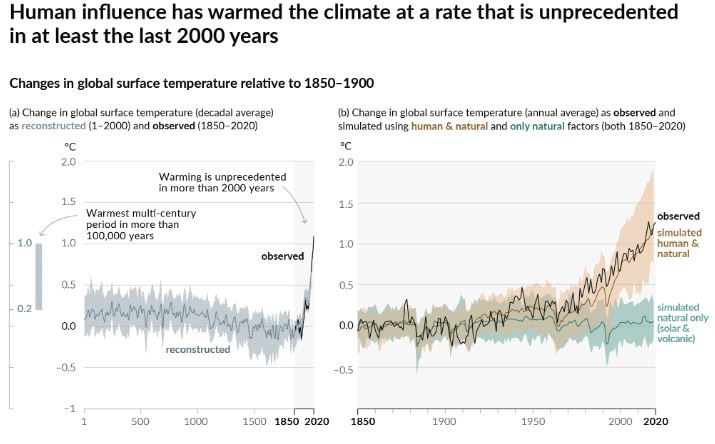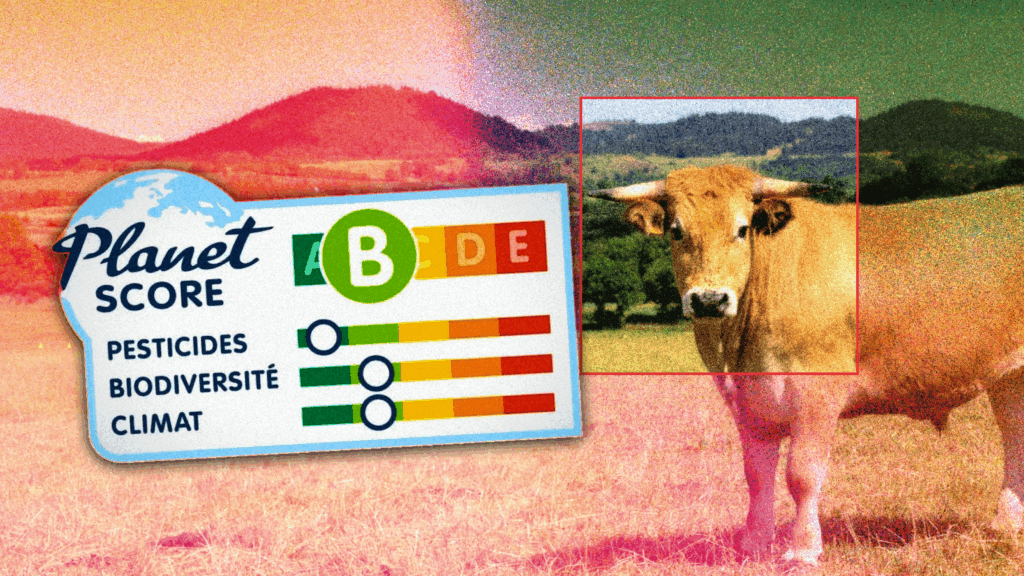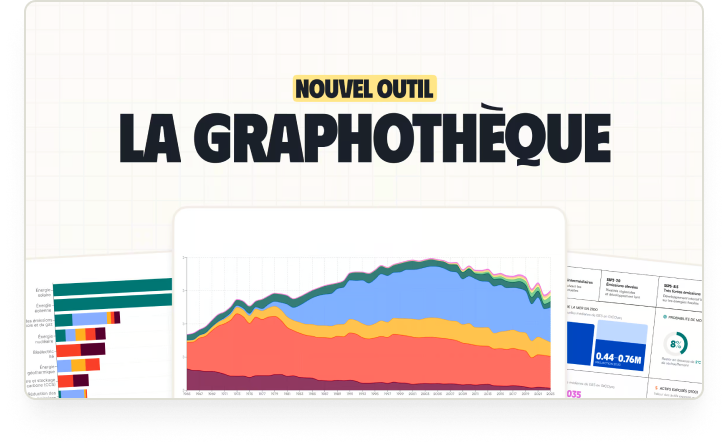For a few months now, the tide has been turning for influencers on social media. Until now, a round-trip to Dubai on a private jet was seen as a sign of “success”, as being a “cool” person. But more and more people are becoming aware of something rather uncool: climate change.
Being quite active on social media, I have recently noticed several firsts that could count as real “weak signals”. Because their content encouraged over-consumption and was totally disconnected from the climate stakes of the coming decades, influencers were challenged and were forced, in some cases, to remove their climaticide content.
Delivering a McDonald’s order by private jet and other affinities
The most recent and certainly the most significant example is that of a YouTuber with 4.5 million subscribers who wanted to deliver a McDonald’s order by private jet (you read that right). The day before the release of his video, he offered his Instagram followers to choose the thumbnail for the video:

Not knowing that person, I was convinced that it was a joke. A troll. I didn’t want to believe that anyone could think it was a good idea to have their McDonald’s order delivered by private jet in the middle of a climate emergency. The following day, the video was released as planned. Note that in the meantime, the jet trip ended up costing an extra €2000. It’s crazy how much inflation there can be overnight…

After having watched the video, I immediately called out Fast Good Cuisine on Twitter, then on Instagram. 15 minutes later, and after dozens of comments questioning the YouTuber about the consequences of such content in the middle of a climate emergency, the video was removed.
I then received hundreds of messages, which — and this is rare enough to be noted — were unanimously supportive. On social media! Can we cry VICTORY yet? A small one, yes. Looks like one can no longer do utter nonsense in 2022.
In order for this to be constructive, I tried to reach out to the YouTuber in question, both publicly and privately, to no avail. 10 days later, he still hasn’t commented on the removal of the video. But since it’s not the first time this has happened (while never on such a scale), here is a practical guide on how to call out some influencers on the climate emergency.
Foreword
If you stumbled upon this site and are not at all climate conscious, well, great! Don’t run away, you’ll be just fine. It is important to understand why some people are allowed to call others out, and why greenies piss you off(E. Macron©). Here is some contextual information.
Let’s start with the bad news, straight from the latest IPCC report:
- There is no doubt that human influence has warmed the atmosphere, the oceans and the land. Rapid and widespread changes have occurred in the atmosphere, oceans, cryosphere and biosphere.
- 100% of global warming is due to human activities. This is now an unequivocal fact (to understand what radiative forcing is, read this article).
- The magnitude of recent changes in the overall climate system and the current state of many aspects of the climate system are unprecedented, both on a scale of several centuries and of several thousand years.
- Each ton emitted contributes to global warming.

- Human activity has warmed the climate at an unprecedented rate for at least 2,000 years. Recent climate changes are widespread, rapid and intensifying. The last 10 years have been 1.1°C warmer than the 1850-1900 period.
- Air transport accounts for somewhere between 2 and 2.5% of global emissions, while making up more than 4% of the historical global warming. Also, only 1% of travelers account for 50% of emissions, and 90% of the world’s inhabitants have never been on a plane.
- Because of continued global warming, each region could experience more extremes, weather events (and, sometimes, combined ones), which would lead to various consequences. This is more likely to happen with +2°C warming than 1.5°C (and even more so with additional warming levels). “Combined” here means “several events occurring simultaneously” (for instance aheat wavefollowed by wild fires, as was the case in Canada in June 2021).
But there is also good news:
- Limiting human-induced global warming requires strong, rapid, and sustained reductions in CO2, methane, and other GHGs. This would not only reduce the consequences of climate change, but also improve air quality.
- If we achieve carbon neutrality, global warming should stop.
- Many changes due to past and future greenhouse gas emissions will be irreversible for centuries, if not millennia, such as changes in the oceans, ice caps and global sea levels. Still, some changes could be slowed down, even stopped, by limiting global warming.
TL;DR ? Hopefully this short outreach interlude was not too long! To put it in one sentence: It’s a sh*tty situation, but it’s NOT too late, we can avoid it being really catastrophic if we start now, by changing our economic system (no less).
What’s the point of calling out influencers?
That’s right: Why call out influencers? Just don’t follow them! And what is an influencer anyway? Here is one possible definition:
An influencer is a person who, in most cases, is active on the web, notably via social media and blogs, and who, through his or her status, position or media exposure, has the power to influence consumption and purchasing habits, and does so for marketing purposes for his or her audience and social community.
Since we need everyone on board and since everyone’s carbon footprint should not exceed two tons CO2eq/year if we are to achieve carbon neutrality, people with a footprint 20, 100, 1000 times larger than what is needed is simply catastrophic. Not only because it is a scandal at the individual level, but also because it influences other peopleand makes them consume, thus participating in global warming.
Merely listening to what scientists have to say won’t be enough to solve such an intricate and complex issue. That would be too easy. In addition to racism and exploitative relationships, inequality is a major variable in a sustainable society. No ecological transition can be achieved without social justice. And social justice starts by altering the lifestyle of influencers who have a huge carbon footprint.
I took the example of a YouTuber earlier, however he is but a drop in an ocean of people who burn the planet, whilst not even being aware of it, or so I hope (#candidmoment). As influencers, and therefore people with influence, these sportsmen, artists, YouTubers, Instagramers, Jean-Baptiste Djebbari Tiktokeurs, etc. have a determining role to play in this transition.
I know some disagree with me, but I remain convinced that Nabilla and Mbappe becoming real ecologists would have more impact than any IPCC report. Yes, it’s sad, but it’s called capitalism, a game that ends badly 12 times out of 10.
NEWSLETTER
Chaque vendredi, recevez un condensé de la semaine, des infographies, nos recos culturelles et des exclusivités.
+30 000 SONT DÉJÀ INSCRITS
Une alerte pour chaque article mis en ligne, et une lettre hebdo chaque vendredi, avec un condensé de la semaine, des infographies, nos recos culturelles et des exclusivités.
The 3 steps to follow
Here are 3 steps derived from my personal (and therefore completely subjective) experience, that I recommend you use to interact on networks and engage with influencers:
- Remain polite: this is sometimes the most difficult step, especially when you know that the original message is false, misleading, insulting, etc. But a message that remains courteous is more likely to be read than an insult that will end up deleted (and will have you blocked). Use private messaging whenever available.
- Explain: be concise, avoid long explanations with incomprehensible words and pompous jargon. If possible, quantify your arguments. An order of magnitude will always be more effective than a 50-line pamphlet.
- A source: a simple comment, an argument or a remark will always carry more weight if it comes with a source. Of course, not all sources have the same weight. When it comes to the climate, there is a world between an IPCC report and an article from Valeurs Actuelles or Figaro Magazine. Big plus: add a link. Quoting is fine, but between saying “the situation is not good in Antarctica” and saying “here is an article to understand the situation in Antarctica in less than 10 minutes, with dozens of sources“, Assume that everyone is lazy, and that having an explanation at your fingertips increases your chances of being read.
Of course, each social media has its own language. You can be a little more allusive on Linkedin and Facebook, Twitter will limit you to 280 characters (threads excluded), and Instagram may not be the most pratical platform to share a link. You will also have to adapt to the situation and to the person you are speaking to, to their temperament, to the potential number of messages they may receive, which could cause your message not to be read…
Moreover, not only do we need to multiply the formats to warn about climate change, but we also need to multiply the forms. As we saw with the movie Don’t Look Up, humor can be much more effective than any explanation in getting a message across. Sometimes you won’t even have to think for more than 5 seconds. Do people who do not respect anything deserve respect? You have 4 hours.

PS: if you think a green guy shouldn’t be on social media, please read this article.
What are the risks?
Being invested in a cause, fighting, defending one’s ideas, is like almost everything in life: It comes with advantages and disadvantages. Here are 4 things to consider:
- The mental load. Being on social media is not always a pleasure. There are great people, but some are in bad faith, and some others are there only to insult, slander and threaten . It is unjustifiable and unfortunate, but you should not count on being spared. You can also choose to be anonymous, or simply “hide” replies and block people who insult.
- The risk of “Shitstorm“: it is defined as “an outburst of virulent criticism towards a person, a group of people or a company on the comments of websites, blogs or social media“. In other words, possible harassment. This is something to consider, especially when you have several thousands of people following you on social media. Should you point out insulting, stupid, racist behavior and risk the person being harassed? Does even the worst of assh*les deserve this? Solutions to avoid this: Avoid ad hominem attacks (which is more difficult when it is a person and not a company), and avoid targeting the same person all the time.
- The risk of getting into trouble: This mainly concerns LinkedIn. If you comment under a post criticizing capitalism, fossil fuels, and you work for Total, don’t be surprised to receive an email from HR…
- The risk of reaction: Talk about degrowth and reduction of consumption on social media, and you will inevitably get a Jean Moulin to come and talk to you about punitive ecology and totalitarian measures worthy of the darkest hours of history. Would another approach have been more efficient? Or would that person not change no matter what, in spite of the scientific consensus and of 50 degrees in April?
A final word
“Revolutionary change is difficult, and people tend to change by following ‘stubborn, sometimes insufferable people.””Changing the world requires sacrifice.”
These words from Helen Lewis are a perfect transcript of the fight against climate change. It is impossible to change our capitalist and productivist system by only talking with people who agree with you. If your ideas do not bother anyone, they are not radical. And we need a radical change to fight climate change.
There are thousands of ways to take action for the climate and the environment, locally or nationally, physically or virtually, via social media. If elections can be won through social media, the battle of ideas will also have to be fought there.













